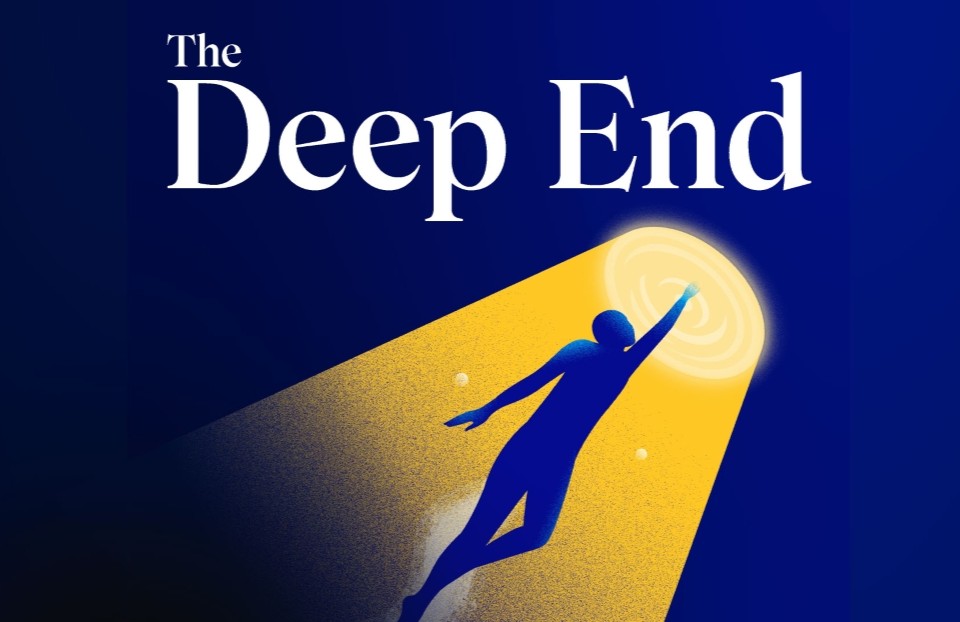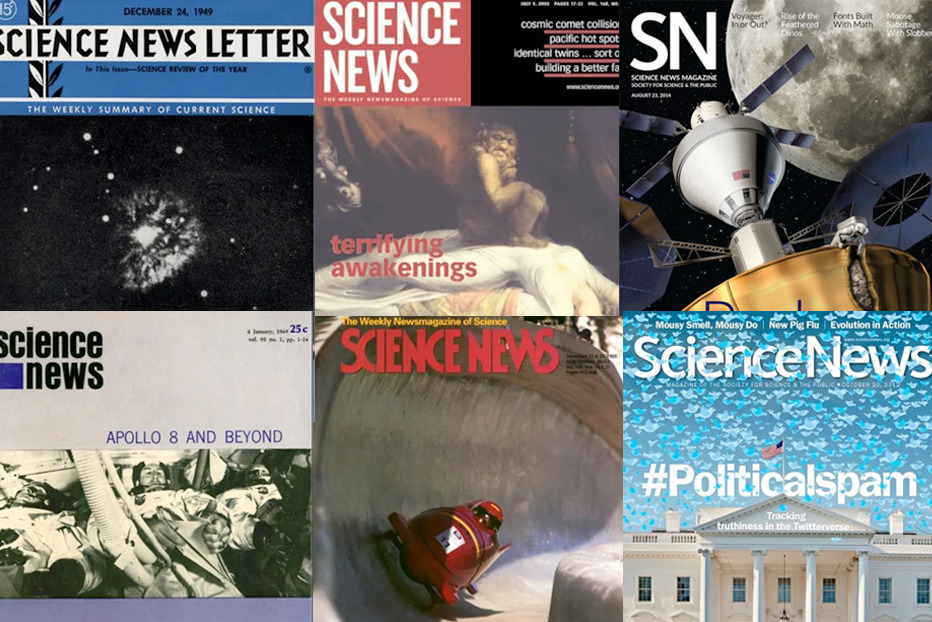Your Brain on Aging: A Chat with Science News’ Laura Sanders
Science moves through thousands of different studies, each taking a different angle on the big questions facing us. Who can keep track of it all?
Science News neuroscience writer Laura Sanders has. For her article “The Mature Mind,” part of Science News’s new special issue “Aging’s Future,” Laura talked to a dozen scientists — from psychologists to cell biologists — and sifted through hundreds of studies to synthesize what science today is saying about how the brain ages — and what we can do to forestall cognitive decline.
Below, Laura tells us why we start aging before we’re even born, the role of “rogue” synaptic pruning in cognitive decline, and whether we should all be doing crossword puzzles — or something else — to stay sharp.
Support expert science journalism. Join the Society today.
‘THE MATURE MIND’ IN A NUTSHELL: How the brain is built — and what happens to it early in development — informs how it will decline as we age.
When the pruning process gets reactivated in aging, it’s more indiscriminate — kind of rogue.
WHEN DOES AGING START: As one of my interviewees said: “The minute we’re born, and even before.” For example, female fetuses’ ovaries start to diminish before they’re even born.
So “development” and “aging” are just different words for the same process. “Aging” can be the very last stage of development, or “development” the very beginning of aging. Scientists frame the story depending on how they subdivide that nice long lifeline.
SYNAPTIC PRUNING GONE BAD: The connections between brain areas get built in a certain order, and they get destroyed in reverse order — the last to develop are the first to go, some scientists think. There are lots of theories about why that is, but no one is certain.
The last connections in the brain to develop are the first to go.
But your brain’s synapses also get pruned as you age in a way researchers think is bad for cognitive health. It’s similar to the pruning that happens in the first few years of life — first your brain has an overabundance of nerve cells and a huge number of connections. And then they get pruned in certain ways to leave a fully tuned, sharpened system to deal with just the information you need.
But when that process gets reactivated in aging, now it’s more indiscriminate — kind of rogue. Scientists don’t understand how exactly it gets kicked on again. But they think it’s bad.
WHY HER ASSIGNMENT WAS TOUGH: You see neuroscience aging papers all the time. There’s no shortage of information and discoveries. But trying to fit it into a contained narrative eluded me for so long — it took me a month and a half to write the story.
That’s why I love this beat. I get to think about what is consciousness and how does the physical brain relate to what we define ourselves as.
One source used the cliché of the visually impaired and an elephant: “You’re touching the tail, you’re touching the ear. No one knows what it actually is.” Every researcher is coming at the question from a small and different angle. None of my sources ever said: “Let me explain the landscape of the aging brain.”
That’s why I think this feature will be so valuable. I haven’t seen this done before.
WHERE SCIENCE ON THE AGING BRAIN IS POINTING:The synapse-pruning stuff is very promising. If you can interfere with the molecules that are doing the pruning, or that mark synapses to be snipped, it might have huge implications for cognitive health for people living into their 80s, and 90s, and beyond.
The idea of aging well versus not being well while aging.
Tina’s piece gets into that idea of aging well versus not being well while aging. One of the things most disturbing to people about aging is the risk to their cognitive health. If you can figure out ways to extend that, prevent loss, or even reverse that, it would be hugely important to so many people.
SHOULD WE ALL BE DOING CROSSWORD PUZZLES: It won’t hurt. Also, larger and more varied social lives — basically, being busy — leaves you with a sharper brain late in life. There’s really compelling evidence on the benefits for your brain of exercise, and eating a good diet, and not smoking.
THE MAN WHO SAW HIS OWN WHITE MATTER: A weird, interesting tidbit I came across comes out of this longitudinal study called the Lothian Birth Cohort, which did a very rigorous IQ test of every 11-year-old in Scotland born in 1921 or 1936.
A researcher, Ian Deary, found the records years later and got in touch with as many of the subjects as he could find. He’s since done a very extensive set of tests on them, brain scans, and IQ tests, and memory tests, and questionnaires about their diet and education. We found a picture of one of the participants (John Scott) — they scanned his brain and got a map of all the white matter tracks in his brain, all the long-distance connections. And then they 3-D printed it, and there’s a photo of him looking at the printout, which is gorgeous.
It really brings home that idea that this physical thing, your brain, can give you an identity, a purpose — but also how that changes with age. That’s why I love this beat. I get to think about what is consciousness and how does the physical brain relate to what we define ourselves as.


